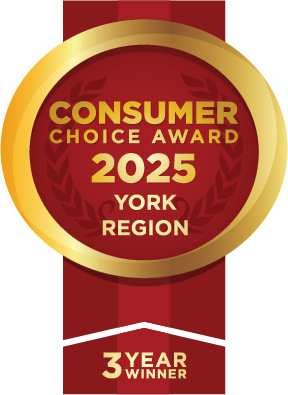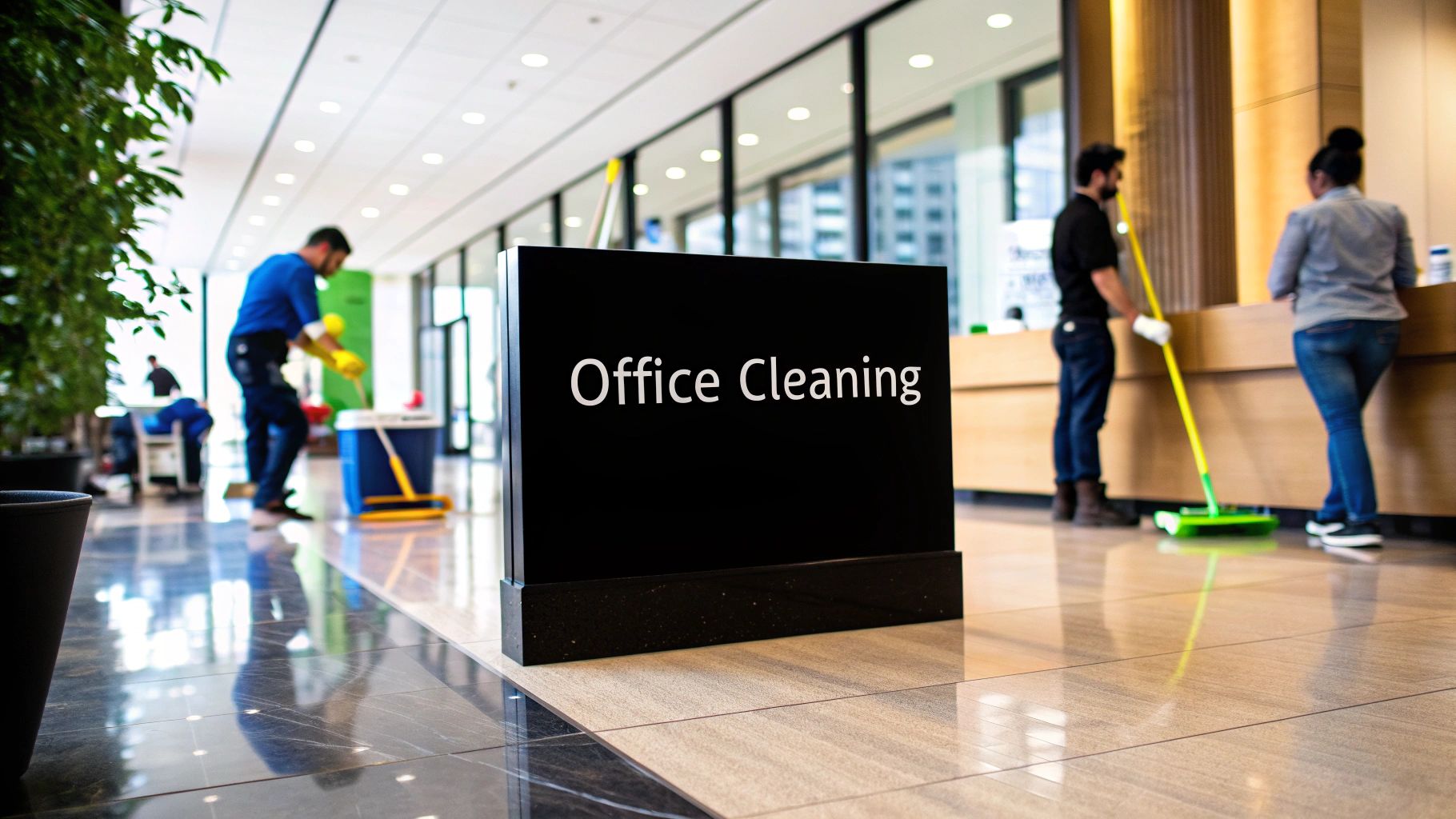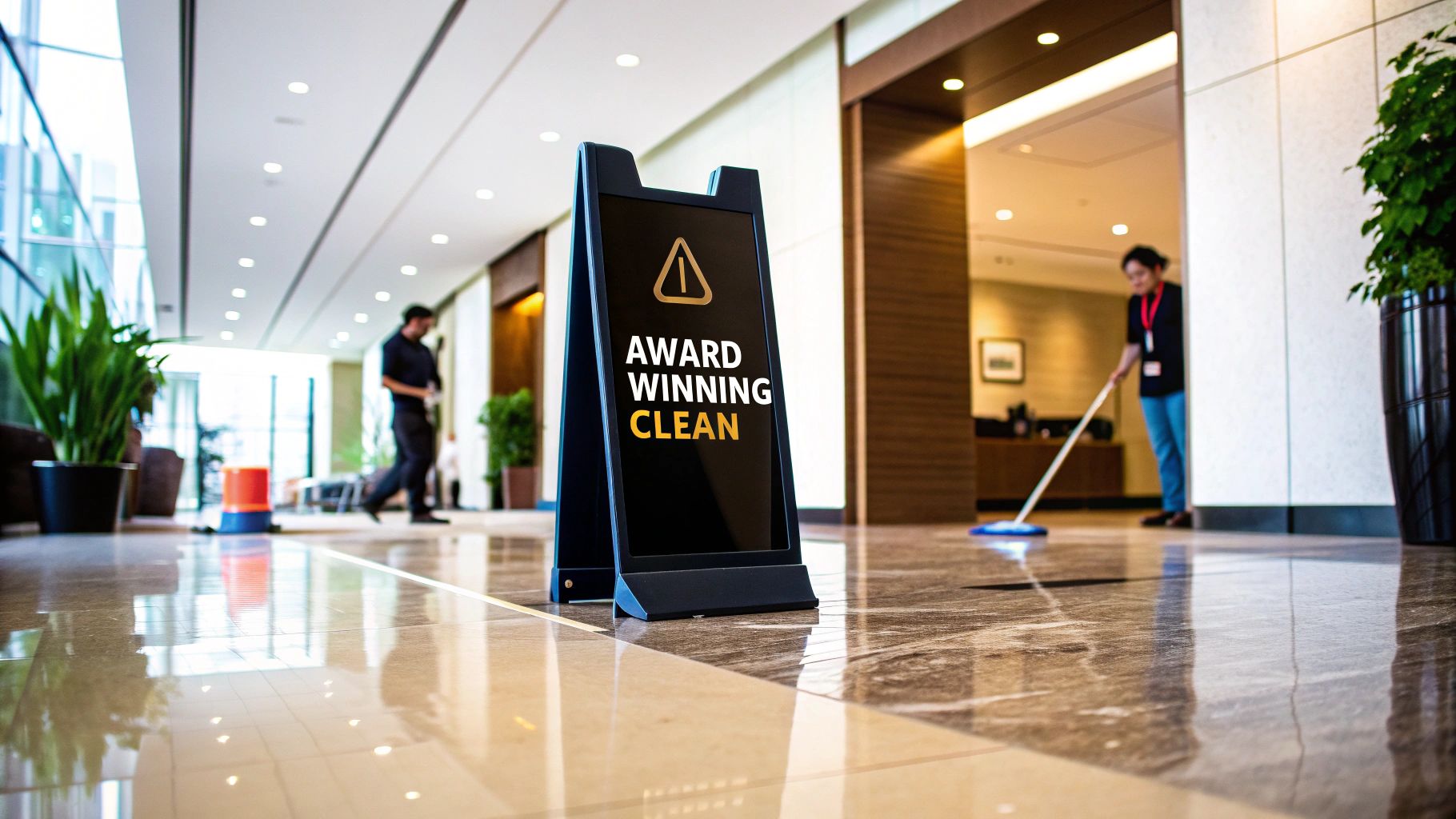It’s a term that’s on the tip of many tongues — everywhere from hospitals to warehouses to grocery stores — as the province begins to take cautious steps towards reopening.
Deep cleaning has become part of our new pandemic vocabulary along with terms like social distancing, self-isolation and community transmission.
But what does it actually mean? And how can the public be sure that one place’s deep clean is the same as another’s? It turns out it means different things to different people, and, while important, shouldn’t give you a false sense of security that a place is COVID-free.
“Deep cleaning is not a technical term,” said Heather Fletcher, senior director of environmental, patient, food and transportation services at Unity Health Toronto. What people might be trying to express is “that it’s going to be more enhanced cleaning on an ongoing basis,” she said, getting right to the rafters.
At Unity Health, the hospital network that includes Providence Healthcare, St. Joseph’s Health Centre and St. Michael’s Hospital, they refer to “enhanced” and “terminal” cleaning, she added.
The latter is an intense cleaning and disinfection process done in rooms between patients to prevent the spread of germs.
Enhanced cleaning means cleaning in public spaces more often, focusing on things that people touch a lot, like handrails, and areas that see more traffic, like hallways.
“For us it feels pretty normal,” Fletcher said. “It’s ongoing attention that will make the difference.”
Cleaning staff wipe down surfaces with a diluted bleach product using microfibre cloths, she added. They chose to use bleach “just to be really thorough,” although there’s a whole list of Health Canada approved products for killing COVID-19. And old fashioned elbow grease is always needed.
“I don’t think you can just wipe on some bleach and you’re done, you need to remove the dirt, you need to remove the bio-burden,” Fletcher added.
A similar process is used by some outside cleaning companies called in by private businesses, like grocery stores, or factories that have COVID-positive staff members and want to reassure the public, said Christine Harley.
She’s the business manager at Arelli Commercial Cleaning Inc., which does commercial, workplace and warehouse jobs.
Their cleaning focuses on making sure places that people touch a lot are disinfected — “your phones, your keyboards, your mouse, your doorhandles, your faucets, your toilet flusher,” — after being washed so they’re not just “disinfecting or spraying on top of dirt.”
The teams work during the night when stores are closed, because they also need to social distance.
They also sometimes do “dry fogging” if the customer asks for it. They spray disinfectant and “it kind of coats the air,” she said, “parts per million land everywhere.”
Her company has been incredibly busy during the pandemic, working from about 8:30 a.m. to midnight every day. And while she’s glad for the business, Harley urges the public not to let the promise of a deep clean give a “false sense of security.”
People still need to take regular precautions like social distancing, and handwashing. Even the most extensive cleaning “only disinfects at that moment,” she said. A place could be cleaned overnight and contaminated again by lunch.
“I would not let my guard down with this invisible disease,” she said. “You still gotta do your part.”
Cleaning companies are “not regulated” by the government, and standards vary, even as they’ve suddenly become an important part of pandemic response.
“Everybody’s either panic buying or panic disinfecting, or panic something,” she added.
“It doesn’t matter how much money you spend, it’s not going to help you if things are not done properly.”
For some places, like factories or warehouses, it might make more sense just to close down temporarily, or close off the area where the person infected with COVID-19 had been.
“You can do all the disinfecting you want, it doesn’t mean you’re going to get every nook and cranny,” Harley said.
“If you can cut off access to that area for five days, chances are the virus is probably dead.”
The Star contacted several companies that had mentioned “deep cleaning” in response to staff members recently testing positive for COVID-19.
A spokesperson for the LCBO responded that the term refers to an “extensive cleaning process” conducted by a third party, which differs depending on the location, and follows Public Health Ontario guidelines. They can take up to a day to complete and measures include “thoroughly cleaning and disinfecting all interior surfaces, touch points, as well as exterior entry areas.”
A fact sheet from Public Health Ontario says surfaces people touch often (like doorknobs and elevator buttons) should be cleaned and disinfected twice per day and, when visibly dirty, using disinfectants that have an eight-digit drug identification number from Health Canada, confirming they’re approved for use. Toronto Public Health has similar guidance.
Pusateri’s Fine Foods, a high-end Toronto grocery store chain, brought in professionals for a deep clean in late April after a head office employee visited one of its stores before realizing they had COVID-19.
A spokesperson said deep cleaning involves a specific procedure, which includes locking down a store, cleaning first with soap and water, disinfecting through “atomized fogging,” and a final checklist to make sure nothing has been missed.
A spokesperson for Longo’s grocery store declined to comment when asked by the Star about deep cleaning. Costco and Loblaws also did not respond to requests for comment.
The good news is SARS-CoV-2, the virus that causes COVID-19, is fairly easy to kill, said Rennie Kissoonsingh, director of safety, environment and quality at commercial cleaning company GDI Services Canada.
It’s an enveloped virus, meaning it has an outer lipid layer surrounding it, like influenza, and any of the disinfectants on the Health Canada approved list will get rid of it.
But, like Harley, he urges businesses to look for cleaning companies with documented procedures and experience in the field and not just go with “Joe Shmoe,” who suddenly popped up to meet the pandemic demand.
It can be tempting as all of the Health Canada disinfectants are “in very short supply” and his own company has been so busy it’s had to turn down some work. But it’s important to do it right.
“Cleaning is a science,” he said. “I hope people have a lot more respect for what we do out there.”
Original Source



















